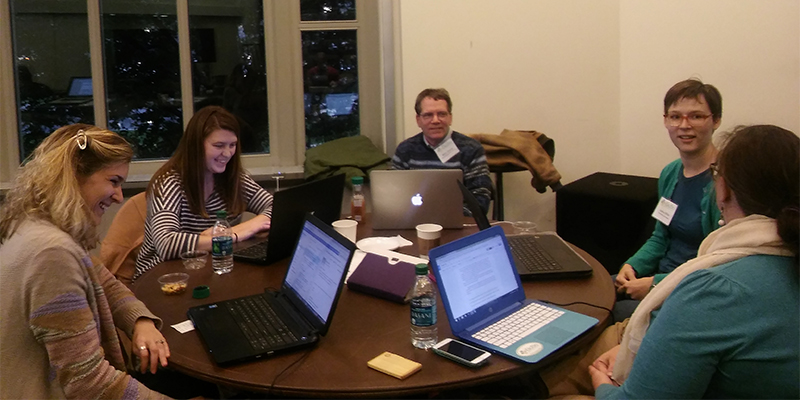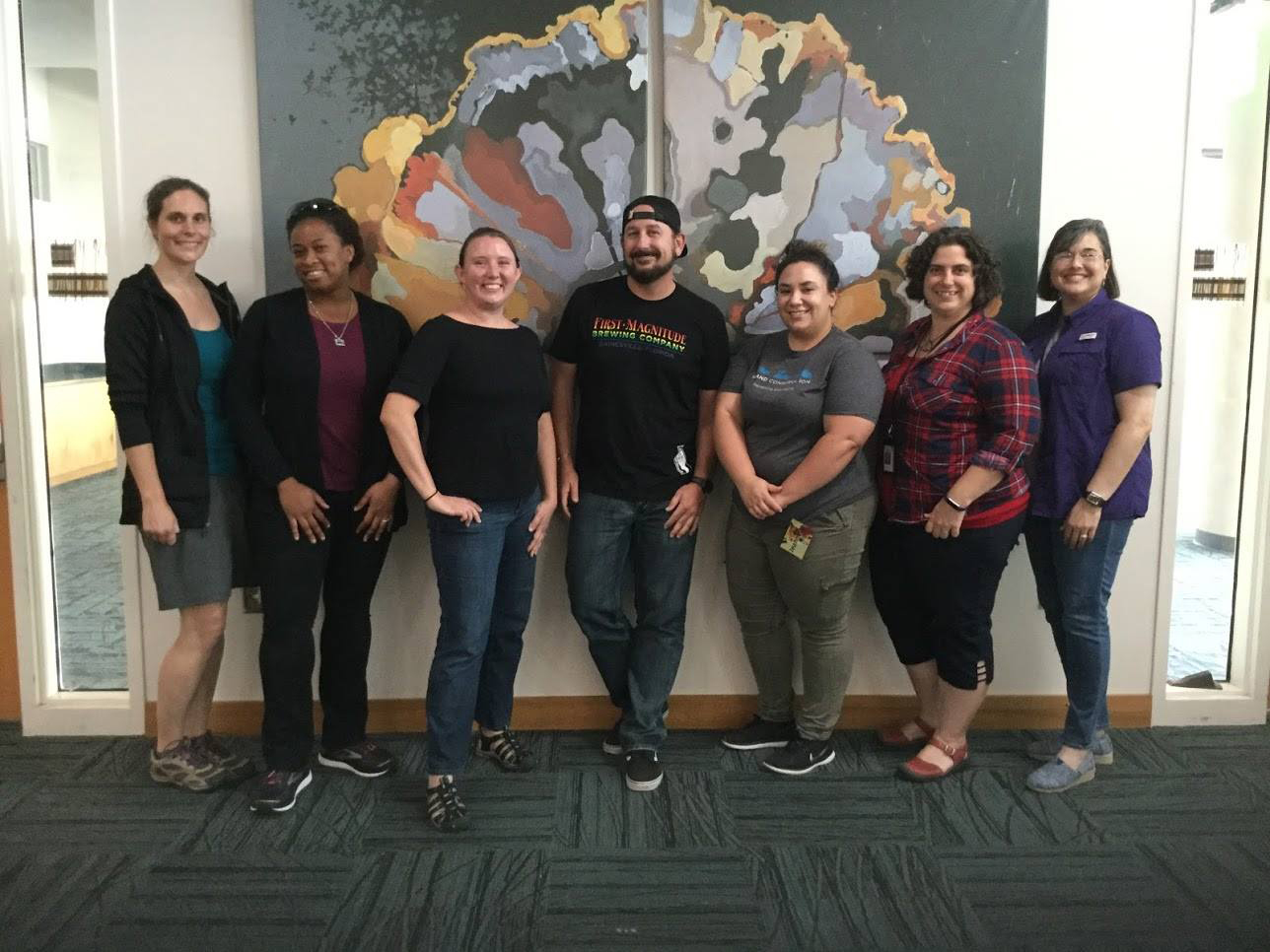
iDigBio has been providing professional development, resources, and community for biodiversity digitization since 2011. Each year, iDigBio hosts the ADBC Summit and organizes dozens of in-person and virtual events. The iDigBio website hosts a variety of community and internally generated content such as workflows, reports, and blog posts. iDigBio also facilitates several active email listservs and social media accounts.
iDigBio values the diversity of views, expertise, opinions, backgrounds, and experiences reflected among our ADBC partners and the broader biodiversity sciences community and is committed to providing a safe, productive, and welcoming environment for all participants of iDigBio-facilitated meetings, events, and virtual spaces. iDigBio-facilitated meetings and events can serve as an effective forum to consider and debate science-relevant viewpoints in an orderly, respectful, and fair manner. This Code of Conduct is important for promoting diversity and creating an inclusive, supportive, and collaborative environment for all people and cultures.
All iDigBio event participants – including, but not limited to, attendees, speakers, volunteers, exhibitors, iDigBio personnel, members of the media, vendors, and service providers are expected to abide by this Code of Conduct. This Code of Conduct applies in all venues, including ancillary events, social gatherings, on-line meetings, webinars, forums, email listservs, and discussions associated with iDigBio.
We expect everyone to respect the following list of behaviors at iDigBio Events.
Expected Behavior
-
Treat everyone (this includes other participants, iDigBio personnel, and the meeting venue) with kindness, respect, and consideration, valuing a diversity of views and opinions (including those you may not share).
-
Treat others with respect, including the use of their preferred name and pronouns.
-
Exhibit professional behavior at all times.
-
Communicate openly, with respect for others, critiquing ideas rather than individuals.
-
Be mindful of your surroundings and of others. Alert conference staff if you notice a dangerous situation or someone in distress.
-
Respect the rules and policies of the meeting venue, hotels, iDigBio-contracted facility, or any other venue.
Unacceptable Behavior
-
Harassment, intimidation, or discrimination in any form including, but not limited to:
-
Physical or verbal abuse
-
Exclusionary behavior and microaggressions related to age, appearance or body size, employment or military status, ethnicity, gender identity and expression, individual lifestyle, marital status, national origin, physical or cognitive ability, political affiliation, sexual orientation, race, or religion
-
Inappropriate physical contact
-
Unwanted sexual attention
-
Use of sexual or discriminatory images in public spaces or in presentations
-
Deliberate intimidation, stalking, or following
-
Sustained disruption of talks or other events
-
Bullying behavior, including intentional microaggressions
-
Retaliation for reporting unacceptable behavior
-
-
Unacceptable behavior intended in a joking manner still constitutes unacceptable behavior.
See this document for iDigBio’s CoC created specific to online interactions and content.
Reporting Incidents
Anyone experiencing or witnessing behavior that constitutes an immediate or serious threat to public safety at any time should contact local law enforcement (by calling 911) and then immediately notify iDigBio staff (listed below).
If you are not in immediate danger but feel that you are the subject of unacceptable behavior, have witnessed any such behavior, or have other concerns, report the incident to one of the conference organizers (as soon as possible) who will work to resolve the situation.
Conference organizers will treat all reports seriously and will work to understand the situation through prompt investigation, including conversations with relevant individuals and witnesses before determining an appropriate course of action.
Contact information to Report an Incident:
Gil Nelson, Project Director
UF Title IX Office: 352.273.1094
UF Employee Relations: 352.392.1072
More information and reporting options are listed here: https://hr.ufl.edu/manager-resources/employee-relations/employee-inquiry...
Consequences
-
Anyone requested to stop a behavior by event facilitators is expected to comply immediately.
-
Event Facilitators or security may take any action deemed necessary and appropriate, including immediate removal from the meeting without warning or refund.
-
Conference organizers reserve the right to prohibit attendance at any future meeting.

Organizing an Event?
Here are some ways to assess your event for inclusivity. For more information reference Columbia University’s guidelines for Inclusive Scientific Meetings.
Before the meeting:
-
Set goals for equity and inclusion, for example:
-
Representation of different identities, career stages, or institutional affiliations in different sessions.
-
Quantity and quality of interactions in sessions.
-
During the meeting:
-
Collect feedback from participants about equity and inclusion goals (e.g., add questions about equity and inclusion to session or program evaluations).
-
Consider collecting data on participation, e.g., who asks questions (Davenport et al. 2014) and how often different people speak.
After the meeting:
-
Which goals were met? Which goals were not met?
-
What worked well from the organizers’ perspective? What fell short?
-
What worked and did not work from participant perspectives? What information might be missing?
-
Share this assessment publicly, if possible.
This Code of Conduct was adapted from the BioQUEST Summer Workshop living document shared on QUBES and from the Ecological Society of America Code of Conduct.
This Code of Conduct is a living document. We value any insights, feedback and comments.







